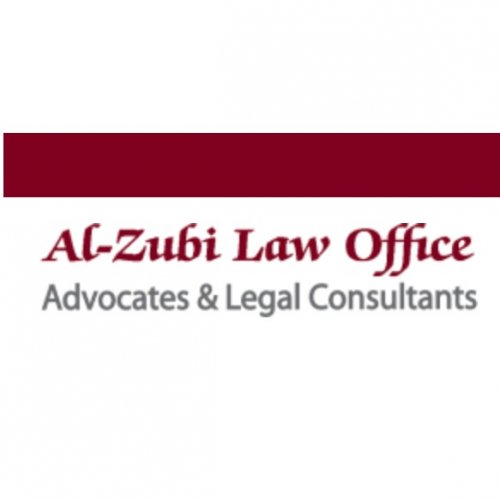Best Franchising Lawyers in Ramallah
Share your needs with us, get contacted by law firms.
Free. Takes 2 min.
List of the best lawyers in Ramallah, Palestine
About Franchising Law in Ramallah, Palestine:
Franchising in Ramallah, Palestine is a popular method of business expansion, allowing entrepreneurs to replicate successful business models. Franchising involves a legal relationship between the franchisor (the parent company) and the franchisee (the individual or entity purchasing the franchise). Franchising law in Ramallah, Palestine governs this relationship, providing regulations and guidelines to protect the rights and interests of both parties.
Why You May Need a Lawyer:
Seeking legal advice in franchising is crucial to ensure your rights are protected and that you comply with all relevant laws and regulations. You may need a lawyer in the following common situations:
- Reviewing and negotiating franchise agreements
- Resolving disputes with the franchisor or franchisee
- Understanding the legal obligations of both parties
- Ensuring compliance with local franchising laws
- Obtaining legal advice on trademarks and intellectual property
Local Laws Overview:
Franchising in Ramallah, Palestine is regulated by several laws and regulations. Key aspects of local laws relevant to franchising include:
- The Palestinian Authority Franchise Law, which sets out the legal framework for franchising in Ramallah
- Requirements for franchise disclosure and registration
- Franchise agreement terms and conditions
- Intellectual property protection, including trademarks and copyrights
- Restrictions on foreign ownership and investment
Frequently Asked Questions:
Q1: What is the process of registering a franchise in Ramallah, Palestine?
A1: To register a franchise in Ramallah, Palestine, it is necessary to disclose all relevant information about your business and operations to the competent authority. This includes details about financials, franchisor-franchisee relationship, and essential documents.
Q2: What are the common terms to negotiate in a franchise agreement?
A2: Common terms to negotiate in a franchise agreement include the initial franchise fee, ongoing royalties, marketing fees, territory exclusivity, renewal or termination provisions, and dispute resolution mechanisms.
Q3: Can a franchisor terminate a franchise agreement without cause?
A3: Generally, a franchisor cannot terminate a franchise agreement without cause. However, the specific terms of the agreement, as well as local laws, should be carefully reviewed to understand the rights and obligations of both parties.
Q4: How are intellectual property rights protected in franchising?
A4: Intellectual property rights, including trademarks and copyrights, are crucial in franchising. It is recommended to register your trademarks and take appropriate measures to protect them. Franchise agreements should clearly outline the use, licensing, and protection of intellectual property.
Q5: What are the restrictions on foreign ownership and investment in franchising in Ramallah, Palestine?
A5: Foreign ownership and investment in franchising are subject to certain restrictions imposed by local laws. It is important to understand the specific regulations and seek legal advice to ensure compliance.
Additional Resources:
- Palestinian Investment Promotion Agency (PIPA): https://investinpalestine.ps/
- Palestinian Ministry of Economy: http://www.economy.gov.ps/
Next Steps:
If you require legal assistance in franchising in Ramallah, Palestine, it is recommended to consult with an experienced lawyer specialized in franchising law. They can provide tailored advice and guide you through the legal processes involved in franchising.
Lawzana helps you find the best lawyers and law firms in Ramallah through a curated and pre-screened list of qualified legal professionals. Our platform offers rankings and detailed profiles of attorneys and law firms, allowing you to compare based on practice areas, including Franchising, experience, and client feedback.
Each profile includes a description of the firm's areas of practice, client reviews, team members and partners, year of establishment, spoken languages, office locations, contact information, social media presence, and any published articles or resources. Most firms on our platform speak English and are experienced in both local and international legal matters.
Get a quote from top-rated law firms in Ramallah, Palestine — quickly, securely, and without unnecessary hassle.
Disclaimer:
The information provided on this page is for general informational purposes only and does not constitute legal advice. While we strive to ensure the accuracy and relevance of the content, legal information may change over time, and interpretations of the law can vary. You should always consult with a qualified legal professional for advice specific to your situation.
We disclaim all liability for actions taken or not taken based on the content of this page. If you believe any information is incorrect or outdated, please contact us, and we will review and update it where appropriate.













